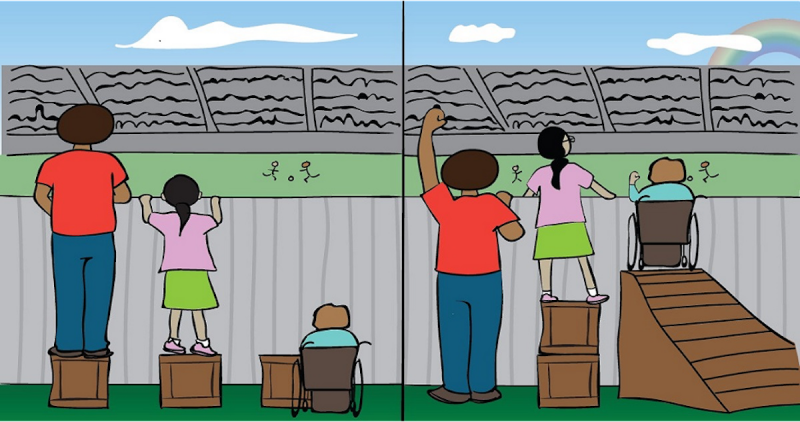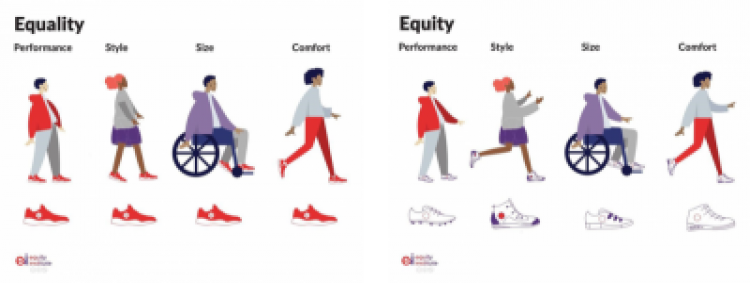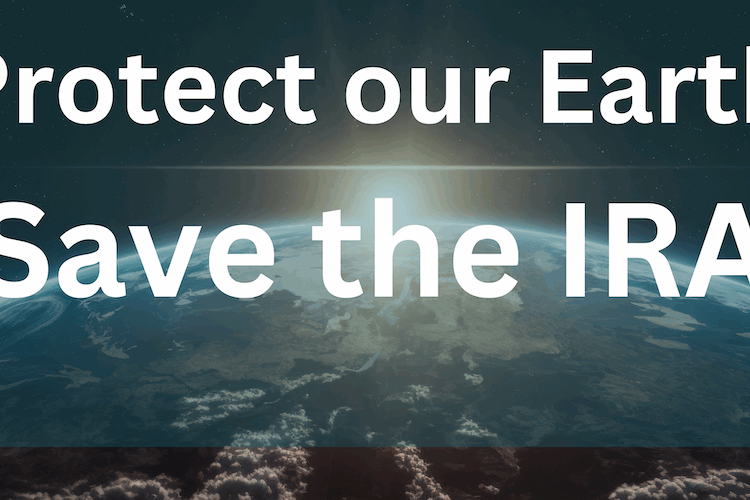Equality -> Equity -> Justice: The Transportation Case Example

By Beverly Ward
“Our equality testimony flows inevitably from our belief that there is that of God in every person. If we believe in Equality, we must work for Justice. British Friends remind us: ‘Are you alert to the practices throughout the world which discriminates against people on the basis of who or what they are, or because of their beliefs? Bear witness to the humanity of all people, including those who break society’s conventions or its laws. Try to discern new growing points in social and economic life. Seek to understand the causes of injustice, social unrest, and fear. Are you working to bring about a just and compassionate society which allows everyone to develop their capacities and fosters the desire to serve?’”
– Harold D. Weaver, Facing Unbearable Truths, 2008
I’ve been sitting for some time with Friends’ testimony on Equality. Friend Hal Weaver and I have been discussing how Friends’ testimonies do not address justice. Perhaps Friends needed a testimony on Equity. By now, most of us have seen some version of the graphic included. I also have seen the below transportation-related meme, shared by the Equity Institute.
These simple but powerful images explain the difference between equality and equity. Equality begins with the assumption of sameness, “equal footing,” and a “level playing field.” Equity begins with listening to each condition: “And the Lord answered that it was needful I should have a sense of all conditions, how else should I speak to all conditions; and in this I saw the infinite love of God”. – George Fox, Journal, 1647, from Faith and Practice, 5th Ed., British Yearly Meeting
“…the testimony of equality in some ways really might get renamed the testimony of equity because in point of fact what is the same for one person, it may not be the right solution or action for another person. So our deep commitment to seeing the divine in every person leads us to seek the right solution or right arrangement that honors each person’s truth…” – Tom Hoopes, Amesbury Quakers, Equality or Equity? The Quaker Testimony

As a Quaker and a second generation transportation worker, I am interested in how my discussion with Friend Hal translates into how transportation policies over time have exacerbated inequality in the US. In many parts of the world, equal access to human transportation resources does not and has not existed for some time. (Human transportation means various modes to transmit ideas, materials, goods, services: roadways, railways, airways, fiber optics, coaxial, satellites.)
For the last 100+ years, there has been a disproportionate investment in auto mobility throughout the world. And, the consequences have devastated nearly every aspect of life on Earth. Those devastating consequences have had disproportionate impacts on low-income and Black, Indigenous, people of color (BIPOC) communities in the US. Some 40 years after its beginning in 1956, it was estimated that the federal investment in the Interstate Highway System alone was $119 billion dollars. I and others have documented the physical and psychological impacts of displacement caused by the manner in which the Interstate was constructed. Other impacts have included severe harm to ambient air quality, pollution of waterways caused by the runoff from the more than 45,000 miles of impermeable surfaces, and damage to historical and sacred sites.
This investment also suppressed the use of other modes, like railways and buses, and was furthered by criminal corporate conspiracies. During the first half of the 20th century, Standard Oil, General Motors Corporation, and Firestone conspired to end the mass transit trolley system and/or monopolize bus transit. The results of these investments have left low-income and BIPOC communities dependent on personal automobile use if it was possible to afford it, or if not, use of underfunded mass transit systems, pedal power, or living in isolation.
I am currently planning a Conference on Advancing Equity in Transportation for September as part of the Equity in Transportation [formerly the Environmental Justice] Committee of the Transportation Research Board of the National Academies of Sciences, Engineering, and Medicine.
In preparation for the conference, we shared the following: “It is now well established that the benefits and burdens of transportation infrastructure investments do not fall evenly across all groups. Automobile access affords the ability to reach a wide variety of opportunities relatively quickly. High-quality public transit, walking, and cycling access often depends on securing relatively expensive housing in highly desirable areas.” In most urban and rural areas in the US, an automobile is necessary for meeting daily needs and participating in community activities.
The Equity in Transportation Committee also shares that “people of color and low-income people in both rural and urban communities are less likely to own cars and more likely to depend on slower public transit modes. People with disabilities, youth, older adults, and single-parent households, all face additional barriers and constraints as they travel throughout cities and regions to meet their daily needs. The end result is that individuals are prevented from reaching their full potential due to transportation-related issues… Two major crises—global climate change and the COVID-19 pandemic—have accentuated some of these inequalities and revealed significant consequences.”
How do we understand how transportation systems both contribute to and address inequities and inequality? What kind of transportation access do you have in your community? Who makes decisions about mobility in your hometown? How are people “prevented from reaching their full potential due to transportation-related issues” where you live? As Friend Hal says, “If we believe in Equality, we must work for Justice.” Without justice, there can be no equity.
Conference information can be found at Trb.Secure-Platform.com/a/Page/TransportationEquity.

